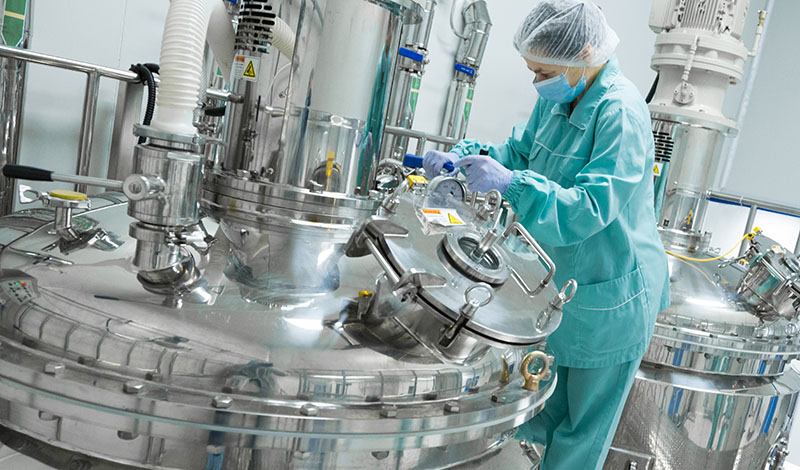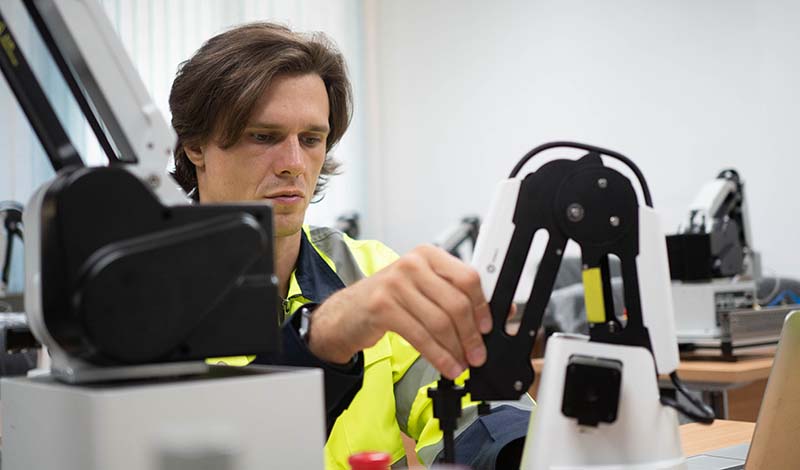Modern industrial process control systems represent a vital backbone for the seamless operation of today’s sophisticated manufacturing environments. These systems are designed to monitor and manage the intricate dynamics of industrial processes in real time.
By constantly adjusting and responding to various process variables — from temperature to pressure, and chemical composition — these systems ensure that operations run smoothly and efficiently.
The real-time data they provide allows control engineers to make immediate adjustments to maintain optimal conditions. This is crucial for industries where precision and reliability are paramount.
In the realm of manufacturing, efficiency and quality are the pillars of success. Advanced control strategies are instrumental in achieving these goals. They do so by optimizing the use and flow of raw materials and minimizing waste and energy expenditure.
Techniques like PID control, model predictive control, and newer methods incorporating machine learning and AI, are transforming manufacturing process control. These strategies streamline production processes and bolster product quality. This is done by ensuring that each phase of the manufacturing process is executed under ideal conditions.
This strategic application of technology leads to enhanced productivity. This is critical in a competitive market where optimizing resources and cutting costs are as important as improving output quality.
Managing the variability of raw materials poses significant challenges in maintaining the desired chemical composition and ensuring high product quality in industrial processes. Variations in the quality or properties of raw materials can lead to discrepancies in the chemical reactions and processes they undergo. This, in turn, can affect everything from production efficiency to end-product quality.
Addressing these challenges requires robust process control systems that can adapt to changes in material properties. Implementing advanced sensors and real-time data analytics helps in continuously assessing the quality of raw materials and adjusting the processes dynamically to maintain the desired chemical composition and ensure consistent product quality.

Consistency is the cornerstone of excellence in manufacturing and production. It ensures that every product batch meets the same high standards expected by consumers and regulators alike. Maintaining this consistency, especially over the long term, demands meticulous monitoring and control of every aspect of the production processes.
This includes not just overseeing the operations but also predicting and mitigating any potential disruptions that could affect output. A sophisticated process control system equipped with real-time monitoring capabilities plays a critical role here.
By providing continuous feedback and enabling prompt adjustments, such systems ensure that production processes remain stable and consistent, thereby safeguarding the quality and efficiency of manufacturing operations.
Machine learning is revolutionizing the field of industrial process control by providing powerful tools to predict and mitigate disturbances in complex processes. By integrating machine learning algorithms into process control systems, industries can significantly enhance their ability to analyze vast amounts of data generated from industrial control systems in real-time.
This technology enables predictive maintenance, optimizes operational efficiencies, and minimizes downtime by foreseeing potential issues before they escalate into major problems. Machine learning models continually learn and adapt from historical data, improving their accuracy and reliability in controlling processes, thereby ensuring sustained improvements in production quality and process efficiency.
Control engineers are pivotal in the smooth operation and continuous improvement of industrial plants. These professionals employ a mix of engineering skills and specialized knowledge to manage and refine industrial processes, ensuring they run efficiently and effectively. In real-time scenarios, control engineers make critical adjustments to the process control systems, reacting swiftly to any changes in production conditions or process variables.
Over the long term, their expertise in developing and implementing advanced control strategies and integrating new technologies, such as machine learning and automated monitoring systems, is crucial for driving innovation and maintaining the competitiveness of industrial operations. Their work not only supports immediate production goals but also lays the groundwork for future advancements in industrial process control.

The integration of various control systems within industrial settings plays a crucial role in streamlining operations and enhancing system responsiveness. By synchronizing different segments of industrial process control, such as monitoring real-time data on process variables and adjusting operations accordingly, industries can achieve a more cohesive and efficient workflow.
This integration allows for seamless communication between different parts of the production process, reducing delays and errors caused by disparate systems. Effective integration of industrial control systems ensures that all components work harmoniously, leading to optimized productivity and increased operational efficiency in processes including manufacturing, chemical processing, and other complex industrial activities.
Safety in industrial automation is a paramount concern, particularly as reliance on industrial control systems increases. These systems, which often handle critical and potentially hazardous industrial processes, must be equipped with robust safety protocols to prevent accidents and ensure the well-being of personnel and equipment.
Strategies to enhance safety include implementing rigorous testing phases, continuous monitoring for anomalies, and incorporating fail-safe mechanisms that automatically shut down operations in the event of a malfunction. Additionally, ongoing training for operators on the latest safety practices and technologies is essential to maintain a safe working environment.
By prioritizing these safety measures, industries can protect against the inherent risks associated with automated systems and promote a culture of safety and reliability.
Process control systems are pivotal in optimizing resource allocation and reducing energy consumption within industrial plants. By leveraging advanced monitoring and control mechanisms, these systems ensure that resources are used efficiently and energy waste is minimized.
The strategic management of resources not only leads to cost savings but also enhances the sustainability of industrial operations. By integrating energy-efficient technologies and optimizing operational parameters, industrial plants can significantly lower their energy usage while maintaining high productivity.
This approach not only benefits the bottom line but also contributes to broader environmental goals by reducing the ecological footprint of manufacturing and processing activities.

In the realm of industrial control systems, managing the large volumes of data generated from various sources poses significant challenges. Effective data management is crucial for making informed decisions and driving process improvements.
The key lies in deploying sophisticated data acquisition and analysis tools that can handle, analyze, and interpret vast datasets in real time. By adopting robust data management strategies, industries can enhance their operational efficiency and adapt more quickly to changing market conditions or production demands.
This involves not only collecting and storing data efficiently but also using advanced analytics to uncover actionable insights that lead to improved process performance and innovation.
Addressing the common issues in industrial process control demands a sophisticated and professional approach. From optimizing resource allocation and managing complex data to ensuring safety and enhancing operational efficiency, the challenges are multifaceted and require expert handling.
Industrial process control is a critical component that supports the backbone of manufacturing and production industries, influencing everything from product quality to environmental impact.
For businesses looking to not only survive but thrive in today’s competitive and technologically advanced environment, partnering with a professional industrial solutions company like PEC is essential. PEC offers the expertise, technology, and innovative solutions needed to tackle these challenges effectively.
Contact PEC today to ensure your industrial processes are efficient, safe, and future-proof, leveraging the best in technology and professional support to enhance your operational success.
Diverse Industries, One Trusted Partner
Safety means more than compliance; it’s our covenant with you.







Whether you’re coordinating your next project or proactively planning your plant maintenance, there’s no better time than right now to contact us.